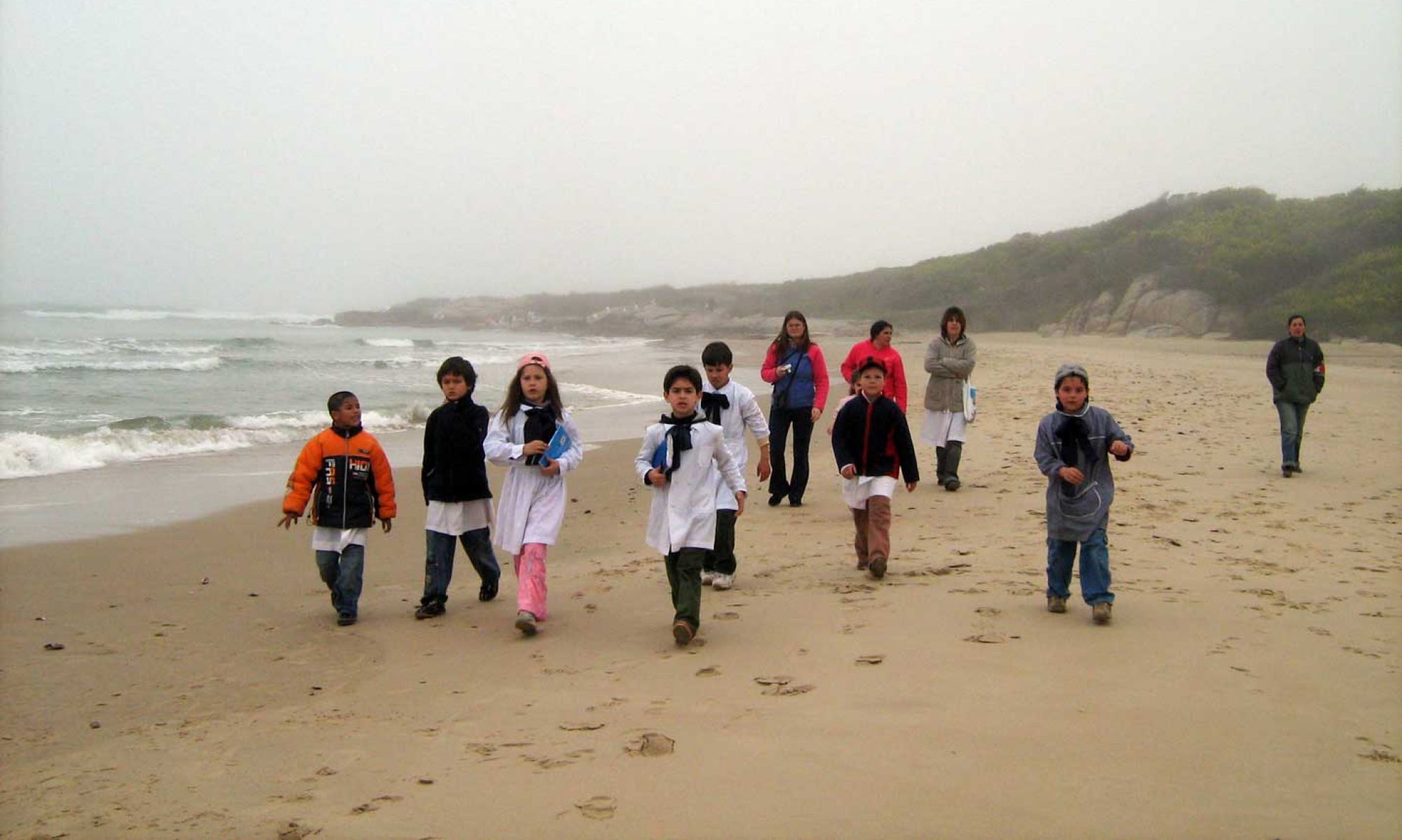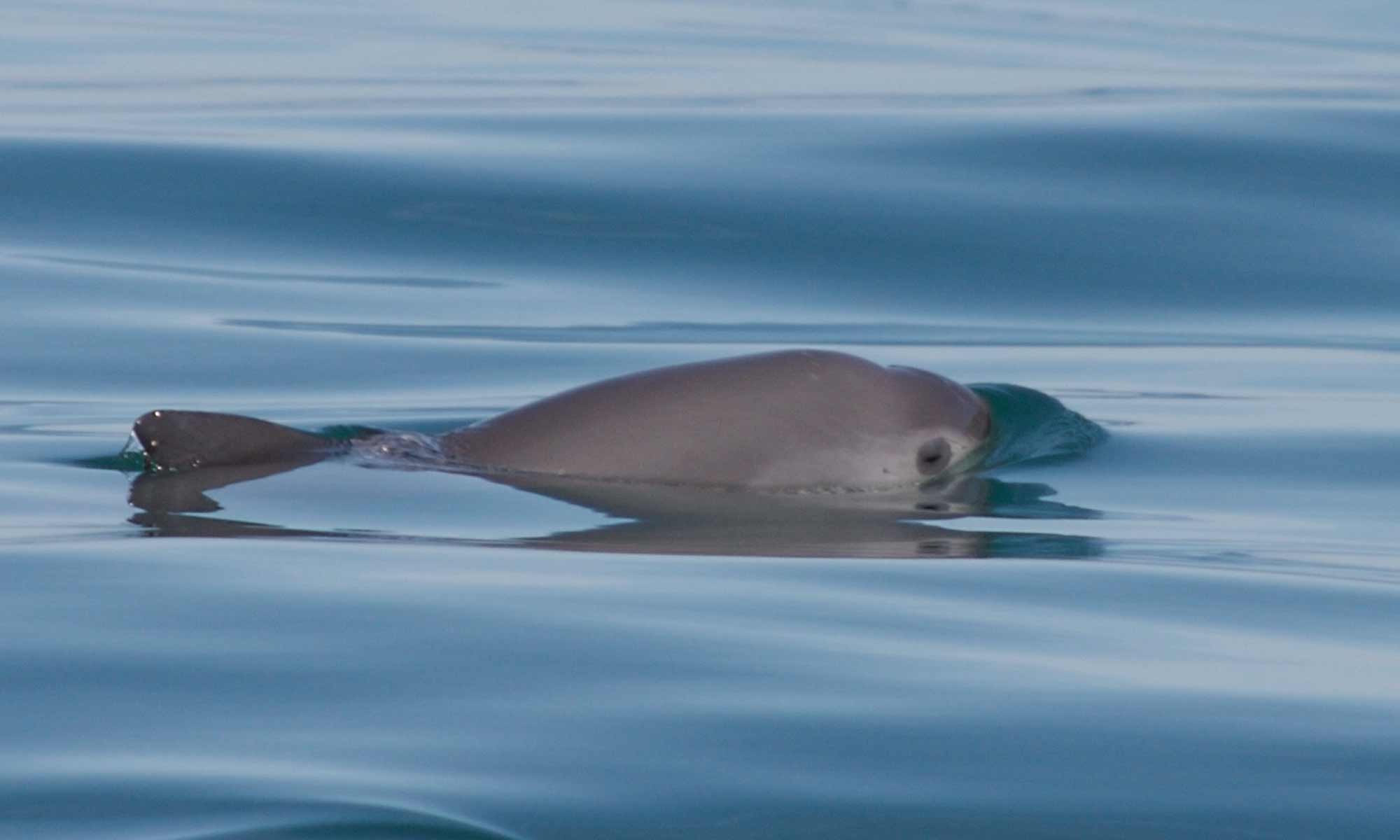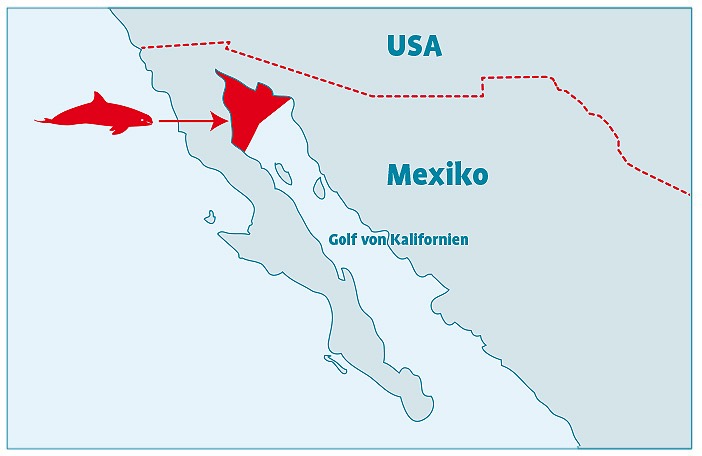The vaquita or California harbor porpoise (Phocoena sinus) is not only one of the smallest porpoise species with a body length of only approx. 1.20 m, but also the whale species with probably the smallest distribution area. Vaquitas are found exclusively in the northernmost part of the Gulf of California in shallow coastal waters and lagoons. In these nutrient-rich areas, they feed on smaller fish, squid and crustaceans. In total, the distribution area covers just 4,000 km², which is only slightly larger than the island of Mallorca.
Ordnung: Cetacea (Wale)
Familie: Phocoenidae (Schweinswale)
Kalifornischer Schweinswal Phocoena sinus
Vaquita porpoise
Größe: < 1,50 M
Gewicht: < 50 kg
Tragzeit: 10-11 Monate
Generationszeit ca. 10 Jahre
Verbreitung: Mexiko, nördlicher Golf von Kalifornien
Lebensraum: flache Küstengewässer (< 40 m)
Bestand: vom Aussterben bedroht (ca. 10 – 13 Tiere – Stand: Juli 2023)
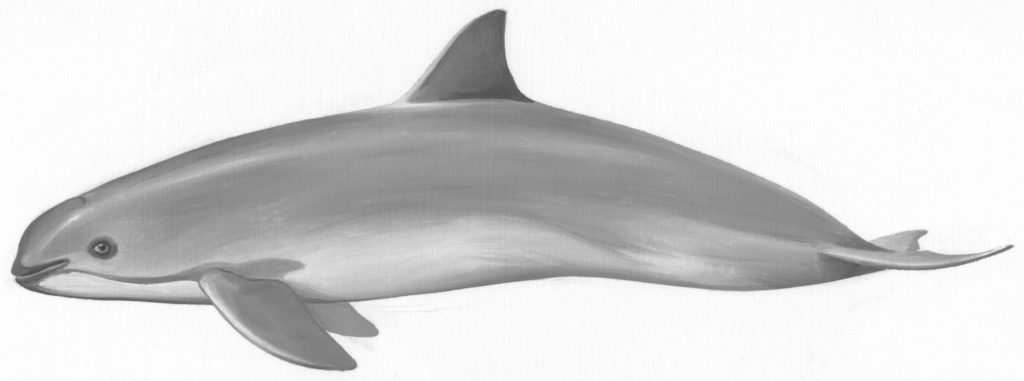
The body of the vaquita is grey in color, whereby the clear dark grey to black coloration in the mouth area and the dark ring-shaped coloration around the eyes distinguish the vaquita from the other porpoise species.
It has an unusually large dorsal fin (fin) for harbor porpoises.
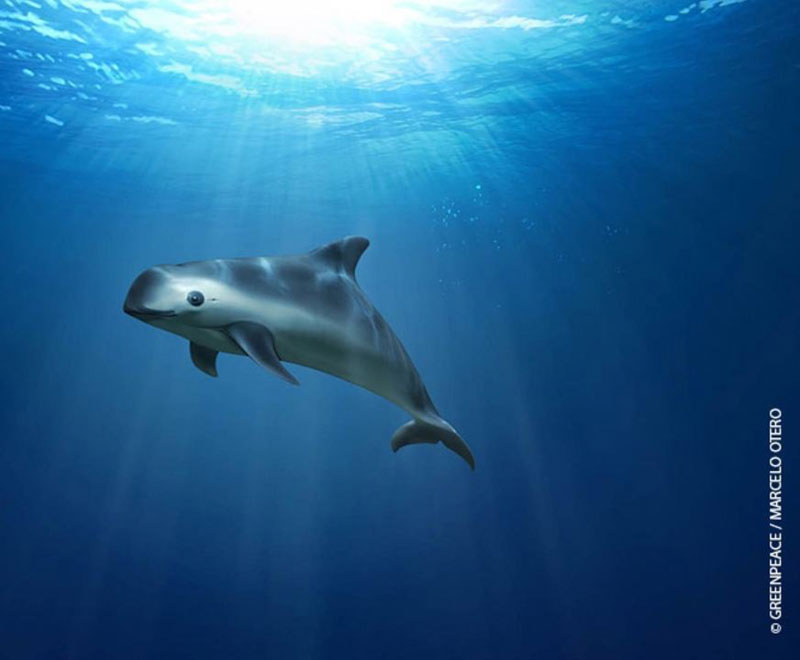
With a population of only around 8 remaining animals (as of May 2024), the vaquita is the most critically endangered porpoise species. IUCN Red List
Illegal gillnet fishing in particular kills too many of the few remaining vaquitas every year and the establishment and monitoring of protected areas is urgently needed.
The latest population counts from 2024 show that the population of the vaquita has declined again with around 6 - 8 animals. However, all animals are healthy and a young animal has also been sighted.
Help us with a donation to save the vaquita from extinction!
Further information on our species conservation project and the rescue of the vaquita can be found here:
Tasks and goals | Board of Directors | La Plata dolphin project | Amazon dolphin project | Videos | Bottlenose dolphins | Species protection | 30 years of YAQU PACHA e.V. | Summary of a successful workshop | Report on our workshop day 2 | Animal species whose protection YAQU PACHA is working on
